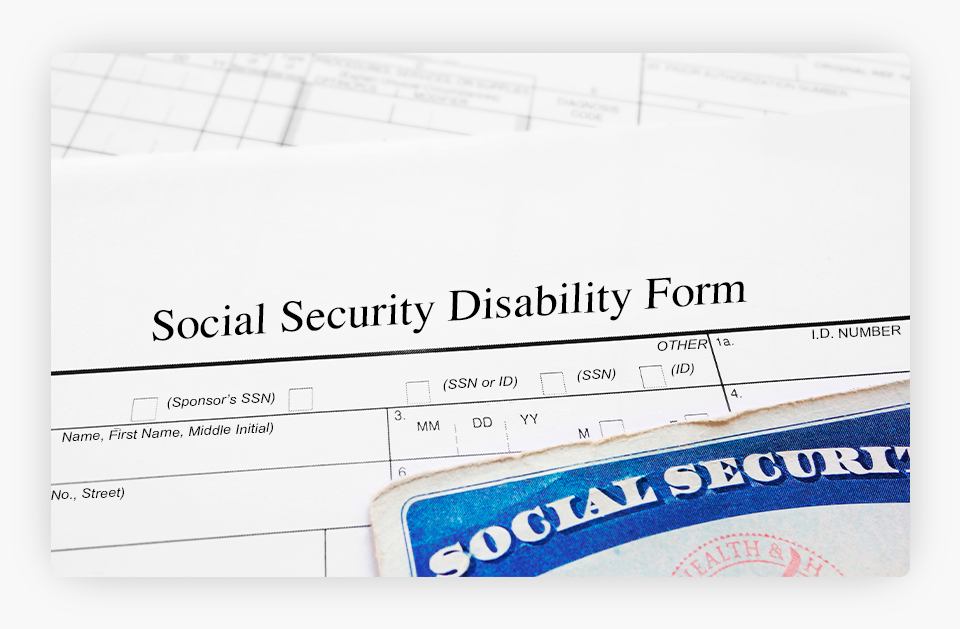We can’t send you updates from Justia Onward without your email.
Unsubscribe at any time.
A disability may cause financial concerns and create obstacles in many areas of life. However, people with disabilities have important legal protections. The Justia Disability Law Center discusses available benefits and their rights more generally.
The Centers for Disease Control and Prevention (CDC) has estimated that up to 27 percent of the adult population of the United States has some form of disability. Some types of disabilities are easily visible, such as mobility impairments or the loss of a limb. Other types are less visible, such as cognitive impairments that may affect things like concentration and memory. Unfortunately, a disability can cause difficulties in getting or keeping a job, finding a place to live, or even doing an errand. A person with a disability also may struggle to support themselves if they cannot earn a living.
Federal laws and regulations provide specific protections to people with disabilities. For example, the Social Security Administration offers two main types of disability benefits, while the Americans With Disabilities Act prohibits disability discrimination in the workplace and numerous other settings. Issues surrounding disability benefits and the rights of people with disabilities are not always easy to understand, though. This is why Justia recently added the Justia Disability Law Center to our Justia Legal Guides for consumers. It aims to help empower people with disabilities by informing them about legal options of which they may not be fully aware.
Social Security Disability Benefits

The two main types of disability benefits offered through the Social Security Administration are Social Security Disability Insurance (SSDI) and Supplemental Security Income (SSI). They may be available to a person with a disability that will last for at least 12 months or result in death. To get SSDI benefits, a claimant usually will need to have accumulated a certain number of work credits. The standard requirement is 40 work credits, but it may be different for younger people. On the other hand, eligibility for SSI does not depend on work credits. To get these benefits, a person with a disability must have limited income and resources.
A five-step sequential evaluation process decides whether an applicant is medically eligible for Social Security disability benefits. The first two steps focus on whether a claimant is performing substantial gainful activity (usually defined by the claimant’s monthly earnings) and whether their condition is medically severe. If they are performing substantial gainful activity, or if their condition does not significantly limit their ability to do work, they will not get benefits.
A claimant who passes the first two steps essentially has two routes to benefits. They likely will get benefits if their condition meets the criteria of an entry in an SSA manual called the Listing of Impairments, which is considered in the third step of the evaluation. Alternatively, the fourth and fifth steps involve a residual functional capacity assessment, which considers the limitations or restrictions caused by the disability and determines any remaining work-related abilities. If the claimant cannot perform their past relevant work (as defined by the SSA) or adjust to other work, they likely will get disability benefits.
Some claimants get denied initially but eventually succeed on appeal. The SSA provides three internal levels of appeals: a reconsideration, a hearing before an Administrative Law Judge (ALJ), and review by the SSA Appeals Council. If a claimant does not get benefits at any of these levels of administrative appeals, they can consider taking their case to federal court.
Further Benefits for People With Disabilities
Rules for Social Security disability benefits are very strict, and not everyone with a serious medical condition may qualify. To guard against the financial loss caused by a disability, a consumer might consider pursuing long-term disability benefits through a private insurer. Some key factors to evaluate when choosing among different options include not only the amount of benefits and the cost in premiums but also the length of time for which benefits will be paid, any waiting period before getting benefits, and the definition of disability in the policy. A consumer also might want to think about whether they want to add one or more riders to a policy. These provide greater protection for an additional cost.

People with short-term disabilities do not qualify for Social Security disability benefits and probably will not be covered through private disability insurance. (Some employees may get short-term disability coverage as a benefit from their employer.) California, New York, New Jersey, Rhode Island, and Hawaii have sought to address this concern by providing short-term disability benefits that account for a percentage of an employee’s missed wages. Distinctive sets of rules apply to each of these programs.
The U.S. Department of Veterans Affairs also provides benefits to former service members who suffer from a service-related injury or illness. For example, a chronic illness arising within a year after a veteran left the armed forces is presumed to qualify as a disability. The amount of benefits depends on the disability rating of the veteran, which is based on the severity of their condition. A veteran who does not initially get benefits can appeal the denial.
Rights of People With Disabilities

Getting or keeping a job can be challenging for a person with a disability. Employers with 15 or more employees must comply with the Americans With Disabilities Act. This federal law covers not only people with disabilities but also people who are perceived as having disabilities and people who have relationships or associations with people with disabilities. The ADA prohibits firing, failing to hire or promote, or taking any other adverse action against an employee based on a disability. It also requires an employer to provide a reasonable accommodation for a disability unless this would cause an undue hardship.
Disability discrimination also may arise in the area of housing. Most types of housing are covered by the Fair Housing Act, which serves a similar role to the ADA. (State laws may provide additional protections to people with disabilities in both employment and housing.) In addition to banning discrimination, the FHA provides a right to reasonable accommodations and modifications for people with disabilities. An accommodation usually involves adjusting a rule or policy, while a modification usually involves a physical change to the property.
Outside work and home, people with disabilities are protected from discrimination involving access to “public accommodations.” This is a legal term for a broad range of businesses and organizations that make their facilities available to the public. Some public accommodations are essential, such as medical facilities and grocery stores, but the term also covers recreational locations like stadiums, movie theaters, and amusement parks. A public accommodation may need to provide a reasonable modification for a person with a disability, and it may need to provide auxiliary aids or services when a disability affects communication.
Final Thoughts
Applying for benefits based on a disability can pose challenges. So can holding an employer, landlord, or other business accountable for disability discrimination. The stakes are often high in these cases, so a person with a disability may want to consult an attorney who can provide them with advice and strategies tailored to their specific needs. In the meantime, the Justia Disability Law Center provides an overview of some of the key legal issues and rules in this area. Like the other Justia Legal Guides, it aims to make the law transparent and accessible to all.
Related Posts